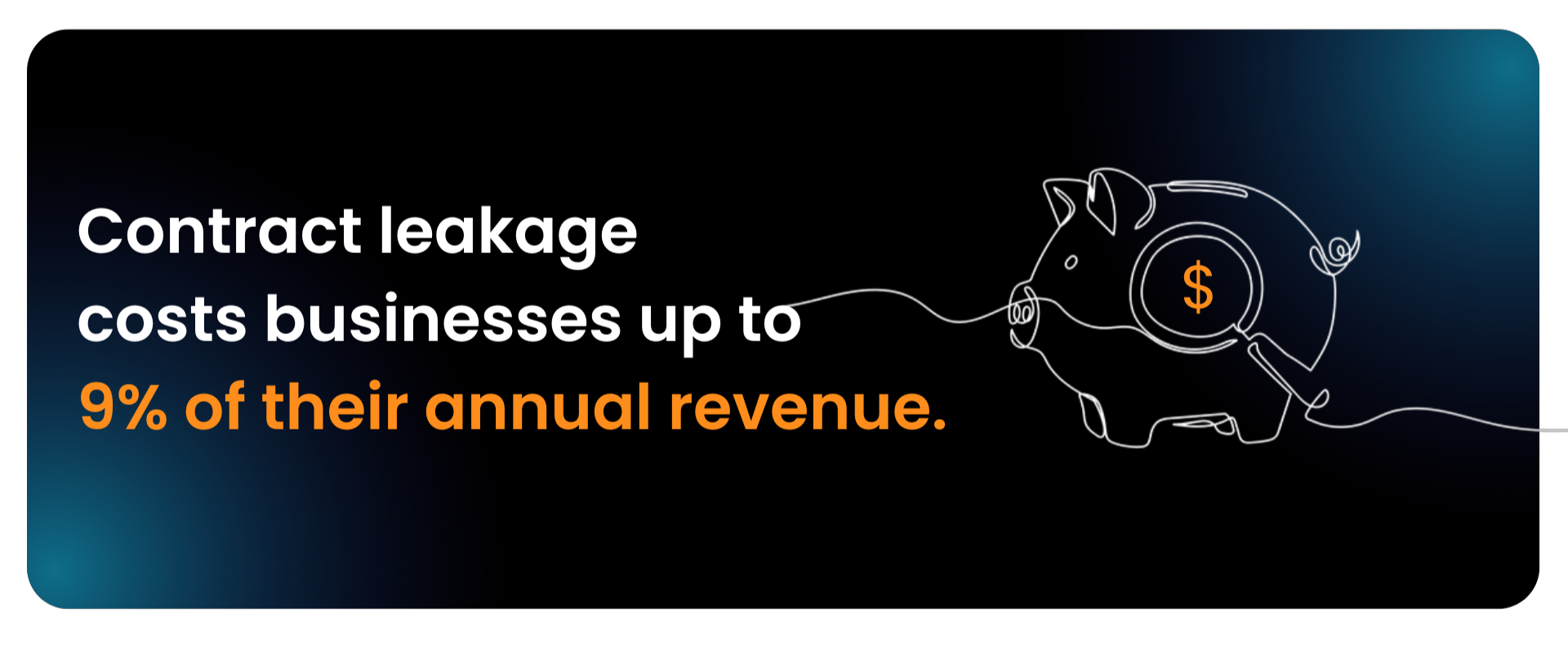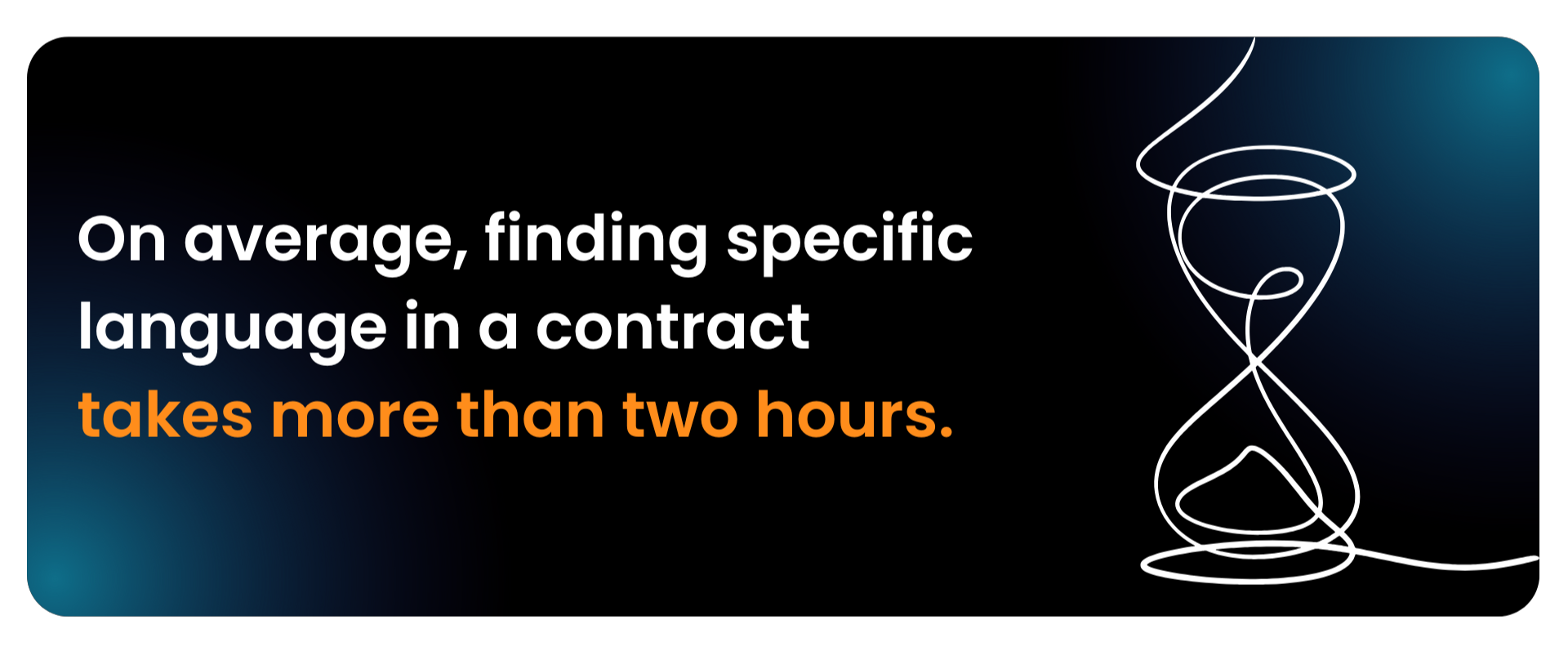The ultimate guide to contract analysis
This is the Summize guide to contract analysis, where you'll find out everything about:
- What contract analysis is
- Why contract analysis is important
- The benefits to contract analysis and its process
- How legal tech can improve contract analysis
February 20, 2026
What is contract analysis?
Contract analysis is a process used throughout the contract lifecycle to examine and track information within a contract. That could include financial details, contract status, clauses, policy changes or comparisons with previous versions.
Every lawyer knows how central contracts are to business success. But once a contract has been signed, it often doesn’t see the light of day again unless an issue comes up.
As contracts are complex, it can be difficult to keep track of their contents like renewal dates, obligations and performance unless regular reviews are carried out – which is where continuous, real-time contract analysis powered by technology comes in.
Interested to know exactly how? Keep reading to find out.
Why is contract analysis important?
Contract analysis turns contracts from static documents into a strategic data asset that General Counsels and Legal Ops teams can use to drive decisions. Data points in contracts – like obligation dates, pricing, SLA metrics, renewal windows and risk language – power compliance, spend control and operational forecasting when extracted and analyzed at scale. Contract analysis is just one way to reduce that number.

The benefits of doing contract analysis
Good contract analysis delivers measurable value across legal, commercial and operational functions – here are just a few key benefits:
Risk mitigation
With structured contract analysis, you can see risky clauses, track obligations and create an early warning system for potential disputes. Having a proactive approach helps prevent missing deadlines, regulatory breachers and costly fallout.
Smarter decision-making
Contract analysis gives in-house legal teams and GCs data-driven insights, meaning you don’t need to rely on manual review or your gut instincts. Analyzing trends across agreements means you can give leadership strategic advice that supports negotiations, financial planning and compliance reporting.
Improved future contracting
Analyzing historical contracts reveals which clauses and negotiation positions drove successful outcomes and which created friction or risk. These insights help strengthen clause libraries, refine templates, and standardize playbooks so future contracts are more consistent, enforceable, and aligned with business goals.
Operational visibility
Contracts often get buried in shared drives or even filing cabinets, leaving key dates and obligations hidden. Contract analysis tools can surface that information into dashboards, reports and alerts, giving you real-time visibility into renewals and performance obligations.
Stronger business alignment
When legal teams share contract insights across departments, you go from being a reactive advisor to a proactive, strategic partner in the business. Use a contract analysis tool to reveal how agreements impact other teams like sales, procurement, finance and operations, meaning you can guide commercial strategy more proactively.
Manual contract analysis vs AI contract analysis software
We all know that manual contract analysis is a bit tricky – reading contracts line by line, identifying obligations, spotting patterns and flagging future risk isn’t something the average GC has time for.

In contrast, AI contract analysis software uses natural language processing (NLP) to automate clause extraction, risk detection and reporting – meaning proactive, faster, and scalable contract management. Let’s take a look at some of the ways AI contract analysis could be the game-changer…
- Automated data extraction – AI tools can automatically extract data points like termination rights, indemnification, auto-renewal clauses, governing law and more at scale. That gives your team more time to focus on interpretation and actions.
- Consistency, standardization and baselining – AI software applies the same rules, playbooks and policies to all contracts, meaning deviations from standard clauses are flagged, risk metrics stay uniform and comparisons across versions or templates are reliable.
- Speed and scalability – AI contract analysis software handles big contract portfolios easily – what might take manual teams days or weeks can be done in minutes and hours, meaning you can keep up with contract volumes without sacrificing depth of analysis.
- Insight into risk, performance and compliance – Beyond extraction, AI can generate dashboards, heatmaps or reports that show patterns, detect compliance gaps and highlight exposure areas across contracts.
- Better resource allocation and ROI – Because repetitive extraction and basic risk flagging are automated, legal teams can direct effort towards strategy, negotiation, business-partnership activity and other high-impact work.
- Flexibility in analysis – Modern AI contract analysis tools aren’t limited to predefined terms, but they allow users to configure and customize searches for any clause or data point relevant to their business, meaning the analysis isn’t restricted by out-of-the-box functionality.
Contract software ROI in real life - when Matillion transformed its contract management by implementing Summize’s AI-powered CLM solution, they achieved a 4062% ROI with a payback period of just 0.3 months. Efficiencies across the whole contract lifecycle freed up legal resources to focus on strategic work, proving that automation drives better resource allocation and measurable returns.
Smarter contract analysis with Summize
For most organizations, contract data is an underused and undervalued asset – but with contract analysis functionality within tools such as Summize’s Contract Lifecycle Management (CLM) software, that data could be transformed to help in-house legal teams and business users make faster, smarter decisions.
Unlike traditional tools or point tools that solely focus on contract review, Summize’s CLM unlocks true contract intelligence. Our AI instantly identifies and summarizes clauses, risk terms, renewal dates and financial obligations, turning complex legal documents into clear, searchable data.
With Summize, legal teams can:
- Surface key data instantly – using AI-powered clause extraction and smart search, Summize identifies any term you deem critical (like termination rights, renewal dates and indemnification clauses) in seconds, so teams can act before risks escalate.
- Create a single source of truth – Summize centralizes all contracts in one searchable platform, applying consistent metadata so stakeholders across geographies and business units can access accurate, up-to-date information easily and quickly.
- Break down contract trends – contract analysis can highlight clause deviations and cycle times, enabling legal teams to spot inefficiencies and optimize future agreements.
- Simplified reporting – automated reporting tools transform raw contract data into clear summaries, and legal-focused metrics like review cycle times and risk exposure, making it easy to share insights with leadership and demonstrate the impact of legal operations.
- Spend less time chasing answers – with Ask SIA, your AI legal extension, you can easily get answers to contract questions through a simple and secure chat interface, ensuring increased efficiency while reviewing contracts and minimized risk.
Summize in the real world – how Ikon Science simplifies clause searches
Ikon Science needed a way to locate specific clauses across large portfolios of contracts without manually combing through every contract.
By using Summize’s analysis feature, the legal team instantly filtered and extracted key termination clauses and payment terms, saving hours of manual searching and reducing risk. The functionality flagged an older contract’s payment terms that didn’t align with the business’ standards. This proactive alert enabled the legal team to act on issues, that otherwise could have become very costly.
{{testimonial 1}}
Demo Summize’s contract analysis functionality
With Summize, teams can continuously analyze and refine agreements as business needs evolve, turning contract analysis into a living process rather than a one-off task. By assessing risk exposure, tracking renewals and comparing clause performance, the platform enables data-driven decisions that protect the business and drive growth.
Want to find out more about revolutionizing your contracts and making them work smarter for your business? Explore our contract analysis software or book your free demo with a Summize product specialist to see the difference for yourself.
We found we needed a way that enabled us to create documents easily and to track the process of contractual requests when there were negotiations or reviews. We also needed storage and a centralized repository of contracts. And that's where we knew a CLM would be excellent for all those three aspects.

More helpful contract resources
Explore even more!
Learn more from our ultimate contract guides





